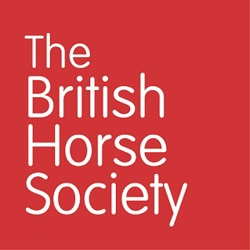Causes
A recent breakthrough in research has identified a potential neurotoxic enzyme as a possible cause2. This enzyme disrupts the microscopic sites of communication between nerves and muscles which are vital for normal muscle function.
EGS is a very complex disease that affects the digestive system causing paralysis of the gut3. This causes fluid to build up in the stomach and small intestine, blockages in the large intestine, and dehydration.
There are thought to be several possible contributing factors including heritability4, weather conditions (such as cool, dry weather with irregular frosts), soil disturbance, pathogens and fungi related to soil and plants, age, immune system, nutrition, gut microbes, and stress levels in the horse. This would explain why one horse grazing in a particular field may die from EGS, while their companion can remain completely unaffected. EGS cases can occur at any time of the year but has been found to be most common between April-June1. Great Britain has the highest number of EGS cases compared1 to other countries in the world, with higher occurrences nearer the east coast compared to the west, particularly in Scotland. EGS can affect any age of horse but is most common in young adult horses between 2-7 years old1
Signs
There are three forms of EGS, acute, sub-acute and chronic, with signs that can overlap. These include:
- Excessive salivating
- Dried inflamed nostrils
- Signs of colic with no gut sounds
- Very bloated stomach
- The contents of the stomach start to pour down the nose (foul-smelling green liquid)
- Drooping eyelids
- Patchy sweating
- Increased heart rate
- Muscle tremors
- Depression
- A ‘tucked up’ abdomen where the horse looks like they’re sucking their tummy in
- Weight loss
- Difficulty swallowing or refusing to eat
Chronic EGS can be less severe, sometimes showing as mild colic and the horse standing with their feet very close together. Signs of acute EGS can appear very rapidly.
If you’re concerned about your horse, contact your vet.
Treatment & prevention
Treatment
chevron-down
chevron-up
Sadly, the prognosis for EGS is poor. Horses diagnosed with acute, sub-acute and severe chronic forms of the disease will usually be euthanised to prevent further suffering. Around 50% of chronic cases may survive if they’re suitable for intensive nursing and vet treatment.
Suitable EGS cases for nursing usually have some ability to swallow, an appetite and no continuous abdominal pain. There’s currently no cure for EGS and treatment revolves around nursing and nutritional support. There are some drugs that can be given, but these are to treat signs and relieve pain.
There must be a discussion between the owner, vet and nurses (if nursing is considered) about the realities of treatment. Owners need to be aware of the long time-frame for treatment, potentially high financial cost (check with your insurance company if your horse is insured) and that there’s no guarantee the supportive care will be successful.
If you’d like to talk to somebody independent, our Friends at the End volunteers are on hand if you need any additional support.
Reducing the risk of EGS
chevron-down
chevron-up
- Minimise exposure to grazing where previous cases of EGS have occurred
- Minimise pasture/soil disturbance (for example, harrowing, pipe-laying/construction)
- Minimise soil exposure (for example grazing down to the soil/poaching of fields)
- Avoid any sudden changes in diet
- Follow a testing-led deworming programme to avoid the unnecessary use of dewormer drugs. Seek advice from your vet to discuss the frequency of testing and possible treatment that may be required for your horse
- Co-graze with ruminants such as sheep
- Where possible, remove droppings by hand, rather than mechanically
- Supplement with additional forage such as hay.
Vaccination
chevron-down
chevron-up
There are currently no vaccines available to help prevent against EGS. A full report from a 2014-2018 EGS vaccination field trial can be found on the Equine Grass Sickness Fund website.
Further information
Useful Resources
chevron-down
chevron-up
References
chevron-down
chevron-up
- Milne, E. et al (2006) Grass Sickness in Horses
- McGorum, B et al., (2024) Neurotoxic phospholipase A2: A proposed cause of equine grass sickness and other animal dysautonomias (multiple system neuropathies)
- McGorum, B. (2021). Equine grass sickness (A multiple systems neuropathy) is associated with alterations in the gastrointestinal mycobiome. Animal Microbiome.
- Vincze, B. (2020). Family aggregation analysis shows a possible heritable background of equine grass sickness (dysautonomia) in a Hungarian stud population. Acta Veterinaria Hungarica, 68(3), 263–268.



